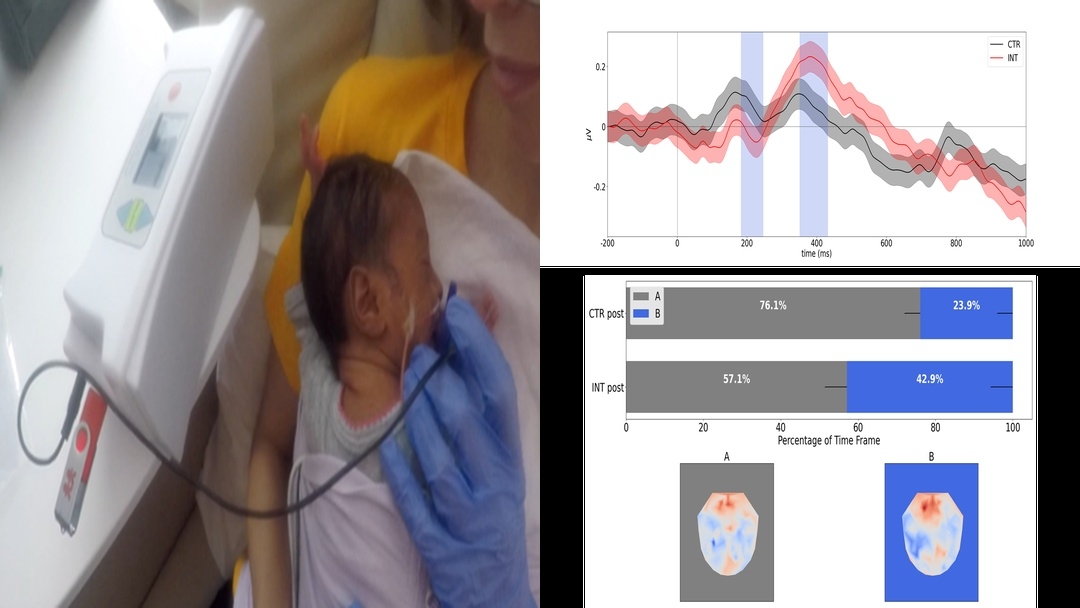You are here
Leveraging Human Voice in the NICU to Improve Infant Neurodevelopment
Speakers
Abstract
The auditory experience of preterm infants after birth alters early development, with implications for childhood trajectories. Caregiver infant directed speech is one of the most valuable interventions in the NICU. However, in US NICUs, parental presence at bedside - and thus exposure to parent voice - is challenging due to systemic and structural factors. Using observational studies and randomized control trials, we have studied the influence of the NICU experience on neural processing of speech and multisensory processing. We recently determined that contingent caregivers’ infant-directed voice in the NICU, administered through a therapist and parent-supported scaffold, had a larger effect than enhanced standard care on neural speech-sound differentiation in preterm infants by discharge to home. In addition, we showed that this resulted in improved Bayley scores in cognition, receptive and expressive language at one year. In addition, Patterns of multisensory processing became more like those of infants born at term. This approach is the first developmental care intervention to demonstrate changes in neural function and later behavioral outcomes, demonstrating the capacity for experience-based plasticity and importance of early inputs for childhood trajectories.


